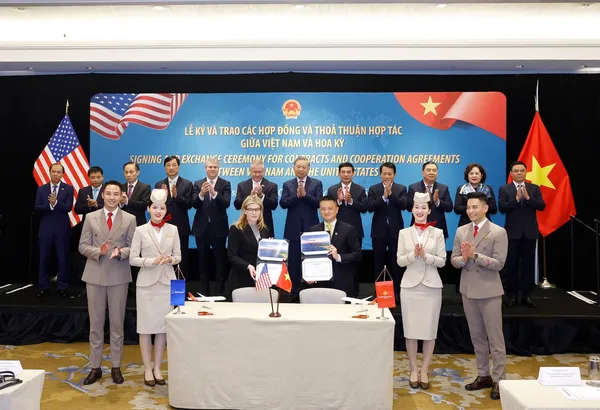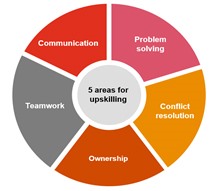 Brandinfo
Brandinfo

Author: Dr. Thiet Kiem Nguyen
Director, Management Consulting (People & Organisation)
PwC Vietnam
-------------------------------
Developing a workforce with the right skills — and the ability to adapt quickly in a world of constant change — hardly happens organically or by accident.
A majority (74%) of CEOs taking part in our 23rd Annual Global CEO Survey expressed concern over a lack of availability of the right skills. When we conducted this survey, from September to October 2019, their worry was around how that would constrain growth. Today this lack of people with the right skills and adaptability could hinder companies’ ability to tackle the impacts of the COVID-19 pandemic.
Looking at Viet Nam, the economy has been impacted by the COVID-19 crisis. Business models need changing, and digital solutions are the new normal. To prepare the business for what lies ahead, upskilling will involve enabling workers to be agile and attain different levels of skills. This will subsequently elevate workforce productivity and optimise organisational capability for change and adaptability.
Building an agile workforce
According to World Bank statistics, today 70 percent of Viet Nam's population of 97 million is under 35. It is a common notion that Vietnamese young workforce is quite dedicated and generally has strong work ethics. We see a large number taking classes after work and on weekends to expand their knowledge, in hope of advancing their careers. In return employee expectations for annual merit increase, bonus and career advancement were quite high. However, in many companies the overall productivity was not on par. There was a mismatch between employee expectations and company workforce productivity achievements. This is where upskilling has become essential.
In many cases upskilling means changing the way we think about work and how we work and not necessarily for employees to take more classes in the evenings or companies to offer more training programmes.
To upskill the workforce for improved performance level, there are five factors that organisations can consider: (1) communication; (2) problem solving; (3) conflict resolution; (4) ownership; and (5) teamwork.

|
Effective communication requires engagement, and engagement mostly leads to better performance. It all starts with improving the way we communicate.
Problem solving is the ability to think critically and holistically when addressing an issue. While it is easy to shoot-from-the-hip, often this approach does not solve the root causes or address the problem at hand. Sometimes there are perceptions that it is the immediate manager's responsibility to solve problems. However, often it is the employees that know the right solution - not the immediate manager. This reliance, over time, will weaken the team and employees’ problem solving ability.
Conflict resolution could become quite an issue. Most employees do not like to address conflicts head on; however, issues do not go away with avoidance. When conflicts are not addressed, two things tend to happen - people keep their feelings covertly and behave overtly at the right moment of time. When this happens, it is usually too late. The second thing is distraction which might affect productivity. An unresolved conflict could lead to communication shutdown. Perception would often become reality. Everyone loses.
Ownership is how we take responsibility for our behavior and action. How we own our successes and failures. Ownership requires accountability, and calls for proactiveness. These characteristics help rev up adaptability, which is essential in this post Covid world. One of the keys to unlocking an organisation’s value lies in the organisation’s culture. When employees own and learn from their successes and failures, everyone wins.
Teamwork is high among every employers’ priorities. Many organise annual team building events, hold regular celebratory events, such as birthday luncheon or getting together after work to promote team spirits. However, to foster teamwork, the reward and recognition mechanisms need to further encourage employee engagement and motivation to collaborate. With that in mind, employers need regular reviews to identify whether their existing company policies, operational processes, and performance management system foster or hinder teamwork.
Upskilling your workforce for the future is relevant and important. By doing well in these five areas - communication, problem solving, conflict resolution, ownership, and teamwork, organisations can expect higher employee performance and productivity. This reinforces the fact that a people-centric approach builds trust and companies investing in their people develop stronger cultures and have better confidence in their future success, especially when faced with adversity and disruption.




